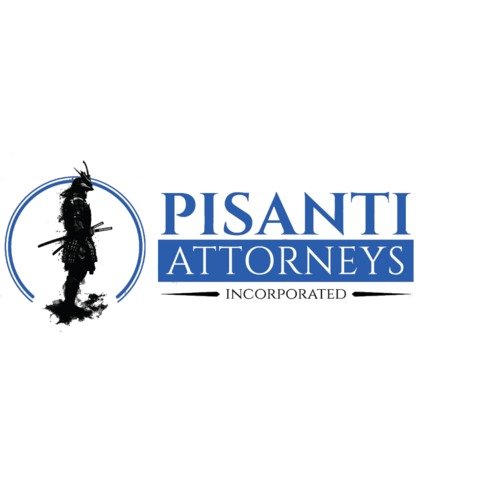Best Foreclosure Lawyers in Germiston
Share your needs with us, get contacted by law firms.
Free. Takes 2 min.
Free Guide to Hiring a Real Estate Lawyer
List of the best lawyers in Germiston, South Africa
About Foreclosure Law in Germiston, South Africa
Foreclosure in Germiston, South Africa, is a legal process where a lender attempts to recover a loan balance from a borrower who has stopped making payments. This usually involves selling the collateral, which is often the borrower's property. Foreclosure can have significant financial and emotional implications, as losing a home is a distressing event. The process varies and is subject to the country's legislative framework and specific local regulations.
Why You May Need a Lawyer
There are several scenarios where you might need legal help with foreclosure: - If you have received a notice of foreclosure and are unsure about the next steps. - To understand your rights and obligations regarding foreclosure laws, especially if you suspect any oversight or illegal act on behalf of the lender. - To negotiate with your lender, possibly reaching a settlement that allows you to retain your home. - If you believe there is a wrongful foreclosure and need to mount a legal defense. - To explore alternative options like refinancing or restructuring your debt obligations.
Local Laws Overview
In Germiston and broader South Africa, the foreclosure process is guided by the National Credit Act (NCA) and other pertinent local regulations. This includes steps such as notifying the borrower, the possibility for debt review, and ensuring all due process rights are respected. The NCA emphasizes protecting the borrower's rights, and any foreclosure action must adhere strictly to its stipulations. The process typically includes assessment of the borrower's circumstances, possible alternative arrangements, and may also involve court proceedings, where the lender seeks a judgment to authorize property sale.
Frequently Asked Questions
What is foreclosure, and when does it happen?
Foreclosure occurs when a borrower fails to meet their mortgage obligations, prompting the lender to sell the secured asset to recover outstanding debt.
Can foreclosure be stopped once it has started?
Yes, there are several ways to stop foreclosure, including reinstatement of the loan, negotiating a new payment plan, or, in some cases, undergoing court intervention if procedures weren't followed correctly.
How long does the foreclosure process take?
The timeline varies based on the case's specifics, court schedules, and whether the borrower contests the action, but it generally takes several months from initiation to completion.
What happens to my credit rating if my house is foreclosed?
A foreclosure will negatively impact your credit rating and may affect your ability to obtain credit in the future. This record usually stays on your credit report for several years.
Can I sell my house during foreclosure?
Yes, you may sell your property during foreclosure to pay off the debt. However, coordination with your lender is crucial for settling any outstanding amounts correctly.
Is it possible to negotiate with the bank for a mortgage modification?
Yes, many lenders are open to negotiating loan modifications that could include changing interest rates, extending payment terms, or reducing the principal to avoid foreclosure.
What rights do I have during the foreclosure process?
Borrowers have rights such as notification of default, the opportunity to cure the default, and the right to contest in court if proper procedures aren't followed.
Do I need to go to court if my property is in foreclosure?
It may become necessary if the process leads to contentious legal proceedings, or you'll contest the case. Otherwise, much is handled through negotiations and administrative steps.
Can I avoid foreclosure by declaring bankruptcy?
Filing for bankruptcy can halt the foreclosure process temporarily. However, it's a complex decision that requires careful consideration of long-term financial implications.
What can I do if I feel the foreclosure was wrongful?
Consult a legal expert to explore the possibility of challenging the foreclosure in court, especially if there are procedural errors or illegal actions by the lender.
Additional Resources
For those seeking more information, the following resources may be helpful: - The National Credit Regulator: Provides guidance and support for those affected by foreclosure and other credit issues. - Legal Aid South Africa: Offers assistance for those who can't afford legal representation. - The South African Human Rights Commission: Addresses potential human rights violations throughout the foreclosure process. - Department of Housing in Germiston: Can provide insights into housing rights and foreclosure policies.
Next Steps
If you require legal assistance in foreclosure matters, it is advisable to: 1. Gather all relevant documents related to your mortgage. 2. Seek advice from a lawyer specializing in foreclosure and real estate law. 3. Explore options with your lender to possibly modify your loan or find alternative dispute resolutions. 4. Consider attending local workshops or clinics on foreclosure prevention offered by community organizations or legal aid bodies. Taking early action can often result in more favorable outcomes.
Lawzana helps you find the best lawyers and law firms in Germiston through a curated and pre-screened list of qualified legal professionals. Our platform offers rankings and detailed profiles of attorneys and law firms, allowing you to compare based on practice areas, including Foreclosure, experience, and client feedback.
Each profile includes a description of the firm's areas of practice, client reviews, team members and partners, year of establishment, spoken languages, office locations, contact information, social media presence, and any published articles or resources. Most firms on our platform speak English and are experienced in both local and international legal matters.
Get a quote from top-rated law firms in Germiston, South Africa — quickly, securely, and without unnecessary hassle.
Disclaimer:
The information provided on this page is for general informational purposes only and does not constitute legal advice. While we strive to ensure the accuracy and relevance of the content, legal information may change over time, and interpretations of the law can vary. You should always consult with a qualified legal professional for advice specific to your situation.
We disclaim all liability for actions taken or not taken based on the content of this page. If you believe any information is incorrect or outdated, please contact us, and we will review and update it where appropriate.










